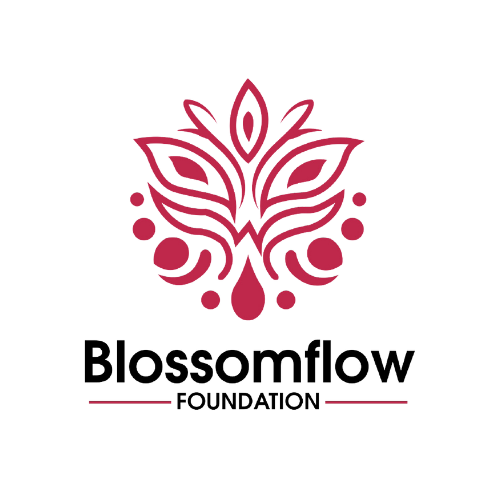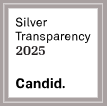
Menstrual Health for Teens: What Every Young Person Should Know
Breaking the Silence on Menstrual Health
Menstruation is a natural and vital part of life, yet for many teens, it can be a source of confusion, anxiety, and even embarrassment. This blog post is designed to provide clear, supportive, and comprehensive information about menstrual health, helping young people navigate their periods with confidence and ease.
We’ll explore what menstruation is, how to manage it, and why understanding this aspect of health is crucial not only for personal well-being but also for promoting gender equity.
What Is Menstruation?
Menstruation is the process by which the body sheds the lining of the uterus (the endometrium) through the vagina. This monthly cycle is a sign that a girl’s body is working properly and that she is growing into adulthood.
Typically, menstruation begins between the ages of 10 and 16, though starting earlier or later is also normal.
Understanding the Menstrual Cycle
The menstrual cycle is a complex, month-long process that prepares the body for potential pregnancy. Here’s a breakdown of the different phases:
- Menstrual Phase (Days 1-5): This phase begins the cycle with menstruation, where the lining of the uterus is shed, causing bleeding. This period usually lasts 3-7 days.
- Follicular Phase (Days 1-13): Overlapping with the menstrual phase, this phase sees the pituitary gland release follicle-stimulating hormone (FSH), which stimulates the ovaries to produce around 5 to 20 tiny sacs called follicles. Each follicle contains an immature egg, but only one will mature fully.
- Ovulation (Day 14): Ovulation is the process where a mature egg is released from the ovary and travels down the fallopian tube. This is the most fertile period in the cycle and is marked by a surge in luteinizing hormone (LH).
- Luteal Phase (Days 15-28): After ovulation, the body enters the luteal phase. If the egg is not fertilized, hormone levels drop, and the cycle repeats with the shedding of the uterine lining.
Understanding the menstrual cycle allows teens to anticipate their periods, recognize signs of ovulation, and detect any irregularities that might require medical attention.
First Periods: What to Expect
The first period, also known as menarche, is a significant milestone in a girl’s life. It can bring about a mix of emotions—excitement, anxiety, and curiosity. Many teens wonder what their first period will be like. Here are some things to expect:
- Spotting: The first period might start with light spotting or a brownish discharge before the flow becomes heavier.
- Cramps: Mild to moderate cramping in the lower abdomen is common, as the uterus contracts to shed its lining.
- Irregularity: It’s normal for the first few periods to be irregular. It can take several months or even years for the menstrual cycle to regulate.
Parents and guardians can play a supportive role by discussing menstruation openly and helping teens prepare with necessary supplies like pads, tampons, or menstrual cups.
Menstrual Cramps: Understanding and Managing Discomfort
Menstrual cramps, medically known as dysmenorrhea, are a common experience during menstruation. They occur when the uterus contracts to expel its lining. While some teens might experience only mild discomfort, others may find cramps more painful.
Managing Menstrual Cramps:
- Heat Therapy: Applying a heating pad or hot water bottle to the lower abdomen can help relax the muscles and alleviate pain.


- Hydration and Diet: Staying hydrated and eating a balanced diet rich in fruits, vegetables, and whole grains can reduce bloating and cramping.
- Exercise: Light physical activity, such as walking, yoga, or stretching, can increase blood circulation and ease cramps.


- Pain Relief Medications: Nonsteroidal anti-inflammatory drugs (NSAIDs) like ibuprofen are effective in reducing menstrual pain and inflammation.
- Consulting a Healthcare Provider: If cramps are severe and disrupt daily life, it’s essential to seek medical advice. In some cases, hormonal treatments like birth control pills might be recommended to regulate the menstrual cycle and reduce pain

Managing Menstrual Cramps:
- Heat Therapy: Applying a heating pad or hot water bottle to the lower abdomen can help relax the muscles and alleviate pain.
- Hydration and Diet: Staying hydrated and eating a balanced diet rich in fruits, vegetables, and whole grains can reduce bloating and cramping.
- Exercise: Light physical activity, such as walking, yoga, or stretching, can increase blood circulation and ease cramps.
- Pain Relief Medications: Nonsteroidal anti-inflammatory drugs (NSAIDs) like ibuprofen are effective in reducing menstrual pain and inflammation.
- Consulting a Healthcare Provider: If cramps are severe and disrupt daily life, it’s essential to seek medical advice. In some cases, hormonal treatments like birth control pills might be recommended to regulate the menstrual cycle and reduce pain.
Menstrual Hygiene: Essential Practices for Teens
Maintaining good menstrual hygiene is critical for preventing infections and ensuring comfort during periods. Here’s how teens can practice effective menstrual hygiene:
- Choose the Right Products: Pads, tampons, and menstrual cups are all effective options, but each has its pros and cons. Pads are easy to use and less likely to cause infections, while tampons are discreet and allow for swimming and sports. Menstrual cups are eco-friendly and can be worn for up to 12 hours, but they require more practice to use correctly.
- Change Products Regularly: To prevent bacterial growth and reduce the risk of toxic shock syndrome (TSS) associated with tampon use, it’s important to change menstrual products every 4-8 hours.
- Maintain Personal Hygiene: Washing the genital area with warm water and mild soap daily is important. However, avoid using scented products, as they can irritate the sensitive skin and disrupt the natural pH balance.
- Disposal of Menstrual Products: Used pads and tampons should be wrapped in toilet paper or the packaging they came in and disposed of in a trash bin. Never flush them down the toilet, as this can cause blockages.
- Emergency Preparedness: It’s wise to carry a small period kit in your bag with spare menstrual products, hand sanitizer, and a change of underwear for emergencies.
Addressing Menstrual Health and Gender Equity
Menstrual health is not just a personal issue; it’s also a matter of public health and gender equity. Around the world, many girls and women face challenges in accessing menstrual products and facilities, which can lead to absenteeism from school or work, stigmatization, and long-term health consequences.
The Role of Education and Advocacy:
- Breaking Taboos: By openly discussing menstruation, we can break down the stigma and empower teens to take control of their health.
- Providing Resources: Ensuring access to affordable menstrual products and adequate facilities is essential for promoting gender equity.
- Supporting Global Initiatives: Organizations like UNICEF and local NGOs are working to address period poverty by distributing menstrual products and educating communities about menstrual health.
Additional Resources for Menstrual Health
In addition to the information provided in this blog post, various resources are available to help young people understand and manage their menstrual health better. Here are some recommended resources:
- Books and Guides: There are numerous books aimed at teens that cover menstrual health and puberty. Titles like The Care and Keeping of You by Valorie Schaefer and Period Power by Maureen Johnson are excellent resources for young people looking for relatable, informative content about menstrual health.
These books provide practical advice and foster a positive perspective on menstruation. - Websites and Online Communities: Websites such as KidsHealth.org and Planned Parenthood offer extensive resources about menstrual health, providing articles, videos, and interactive tools to help young people navigate their experiences.
These platforms serve as valuable sources of information and can help demystify topics related to menstruation and menstrual hygiene. Additionally, online forums can be a safe space to connect with peers who may have similar questions or concerns. - Health Care Providers: Consulting with a healthcare provider is always a good option for personalized advice and care. Doctors or gynecologists can provide professional insights into menstrual health, address any concerns, and suggest treatment options for issues like severe cramps or irregular cycles.
Building a rapport with a healthcare provider can empower young people to discuss their menstrual health openly. - School Health Programs: Many schools have health education programs that cover menstrual health as part of their curriculum. Engaging with these programs can provide teens with the knowledge they need in a supportive environment.
Schools can also implement initiatives like free menstrual product dispensers to promote menstrual hygiene and accessibility.
Celebrating Menstruation: A Natural Part of Life
As teens learn about their bodies and menstrual cycles, it’s essential to shift the narrative around menstruation from one of stigma to one of celebration. Menstruation is a natural process that signifies growth, change, and the potential for life. Encouraging a positive perspective can help young people embrace their menstrual health journey with pride and confidence. By recognizing that menstruation is a shared experience, we can build a sense of community among those who menstruate.
Embracing Menstrual Health in Daily Life
Here are some tips for incorporating menstrual health awareness into everyday life:
- Normalize Conversations: Create an environment where discussing periods and menstrual health is normal. This can be done through open discussions at home or in school settings. The more we talk about menstruation, the less stigma surrounds it.
- Create a Menstrual Calendar: Encourage teens to track their cycles using a calendar or an app. This helps them understand their bodies better and prepares them for upcoming periods. Tracking symptoms can also assist in identifying patterns, making it easier to manage menstrual cramps or other discomforts.
- Share Experiences: Encourage young people to share their experiences with friends or trusted adults. This sharing can foster community and support among peers, making it easier to navigate the challenges of menstruation together.
- Advocate for Change: Inspire teens to take action by advocating for better menstrual health policies in their schools and communities.
This can include initiatives like free menstrual product dispensers, workshops on menstrual health, or campaigns aimed at increasing awareness about menstrual hygiene and gender equity.
Conclusion
Menstrual health is an essential component of overall well-being for teens and young adults. By understanding the menstrual cycle, practicing good hygiene, and managing symptoms, young people can navigate this natural process with confidence.
Remember that menstruation is a normal part of life, and seeking information and support is vital. By fostering open conversations and addressing the importance of menstrual health and gender equity, we can create a healthier and more inclusive environment for everyone.
If you found this information helpful, consider sharing it with friends, family, or anyone who might benefit from it. Together, we can spread awareness about menstrual health and help dispel the myths and stigma associated with it.
Let’s empower the next generation to embrace their menstrual health journey! Through education and open dialogue, we can transform menstruation from a source of anxiety into an opportunity to address menstrual health and gender equity
FAQs: Answering Common Questions About Menstrual Health
- How can I track my menstrual cycle? Tracking your menstrual cycle can help you anticipate your period, recognize patterns, and manage symptoms. You can use a simple calendar to mark the days you bleed or download a period-tracking app that offers more detailed insights into your cycle.
- Is it normal to have irregular periods? Irregular periods are common during the first few years after menarche, as the body’s hormonal system matures. However, if irregularities persist or you experience symptoms like heavy bleeding or severe pain
- What is the average age for a girl to get her first period?
Most girls begin menstruating between the ages of 10 and 16. However, starting earlier or later is often perfectly normal. Factors such as genetics and overall health can influence when a young person gets their first period.
- How long does a typical menstrual cycle last?
The average menstrual cycle lasts about 28 days, but it can range from 21 to 35 days for different individuals. Tracking the cycle can help identify patterns and any irregularities.
- What should I do if my period is very irregular?
Irregular periods can be normal during the first few years after menarche. However, if irregularities persist or if periods are excessively heavy or painful, it’s important to consult a healthcare provider for evaluation.
- How can I manage menstrual cramps effectively?
Menstrual cramps can be managed through various methods, including:- Applying heat to the abdomen
- Taking over-the-counter pain relievers like ibuprofen
- Engaging in gentle exercise
- Practicing relaxation techniques, such as deep breathing or yoga
- Is it safe to swim or exercise during my period?
Yes! It is safe to swim and exercise during your period. Many people find that physical activity can help alleviate cramps and improve mood. Using appropriate menstrual products like tampons or menstrual cups can provide comfort and confidence while engaging in these activities.
- What are the best menstrual hygiene practices?
Essential menstrual hygiene practices include:- Changing menstrual products regularly (every 4-6 hours for pads/tampons)
- Washing hands before and after changing products
- Using mild soap for washing the genital area
- Disposing of used products properly
- How can I talk to my parents about menstruation?
Approaching the topic with honesty and openness can make conversations about menstruation easier. Start by expressing your feelings or asking questions. Remember, most parents are willing to help and provide support regarding menstrual health.
- Can diet affect my menstrual cycle?
Yes, diet can play a significant role in menstrual health. Eating a balanced diet rich in fruits, vegetables, whole grains, and lean proteins can support overall health. Some individuals may find that reducing caffeine and sugar before and during their periods can minimize bloating and discomfort.
- What should I do if I experience severe pain during my period?
Severe menstrual pain, known as dysmenorrhea, can be common but should not interfere with daily activities. If pain is severe, persistent, or accompanied by other concerning symptoms (such as heavy bleeding or unusual discharge), it’s crucial to consult a healthcare provider for evaluation and management. - What is the relationship between menstrual health and gender equity?
Menstrual health is an important aspect of gender equity, as access to menstrual products, education, and healthcare can significantly impact young people’s ability to participate in school and social activities.
Promoting awareness and advocating for policies that support menstrual health can contribute to greater gender equity in society.
All Categories
Recent Posts
Why SDG 4 Cannot Be Achieved Without Ending Period Poverty
Tags
Give them a helping hand
Every donation fuels our mission to combat period poverty. Your generosity brings us closer to menstrual equity.
+234-909-482-1642
inquiries@blossomflow.org




